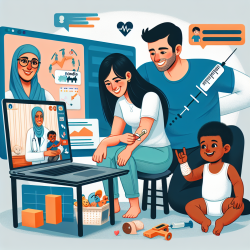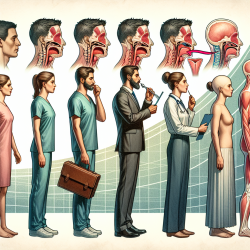Introduction
In the wake of the devastating 2023 Turkey-Syria earthquakes, the healthcare needs of vulnerable groups have become a focal point for practitioners worldwide. The scoping review titled A scoping review of post-earthquake healthcare for vulnerable groups of the 2023 Turkey-Syria earthquakes provides critical insights into the healthcare interventions necessary for these groups. This blog aims to guide practitioners in enhancing their skills by implementing research outcomes or encouraging further research.
Understanding Vulnerable Groups
The earthquakes affected various vulnerable groups, including children, women, elderly people, persons with disabilities (PwDs), and those with chronic diseases (PwCDs). These groups face unique challenges, such as increased risks of disease, injury, and discrimination, making targeted healthcare interventions crucial.
Key Interventions for Post-Earthquake Healthcare Services (PEHS)
- Humanitarian Health Relief: This intervention scored the highest in the review, emphasizing the need for coordinated efforts to provide medical supplies, food, and shelter. Practitioners should focus on multisectoral coordination to ensure effective delivery of these resources.
- Medical Care: Inpatient and outpatient care, including surgeries and specialized treatments, are vital. Practitioners should be prepared to address the specific needs of vulnerable groups, such as children and pregnant women.
- Mental Health and Psychosocial Support (MHPSS): MHPSS is essential for addressing post-traumatic stress disorders and other mental health issues. Practitioners should integrate these services into primary healthcare systems and provide community outreach programs.
- Health Promotion, Education, and Awareness: Educating affected populations on disease prevention and resilience practices is crucial. Practitioners should engage in community outreach and social media campaigns to raise awareness.
- Disease Surveillance and Prevention: Effective surveillance systems are necessary for early detection and prevention of disease outbreaks. Practitioners should prioritize developing these systems in affected areas.
- Disability Rehabilitation: Rehabilitation services are crucial for restoring the physical functioning of injured and disabled individuals. Practitioners should focus on providing life-long rehabilitation support.
- Sexual and Reproductive Health (SRH): SRH services, particularly for women and girls, are essential. Practitioners should ensure the availability of maternal health services and hygiene products.
Conclusion and Call to Action
The scoping review highlights the importance of prioritizing healthcare interventions for vulnerable groups in the aftermath of disasters. Practitioners are encouraged to utilize these insights to improve healthcare delivery and outcomes. For further information, practitioners are encouraged to read the original research paper.
To read the original research paper, please follow this link: A scoping review of post-earthquake healthcare for vulnerable groups of the 2023 Turkey-Syria earthquakes.










